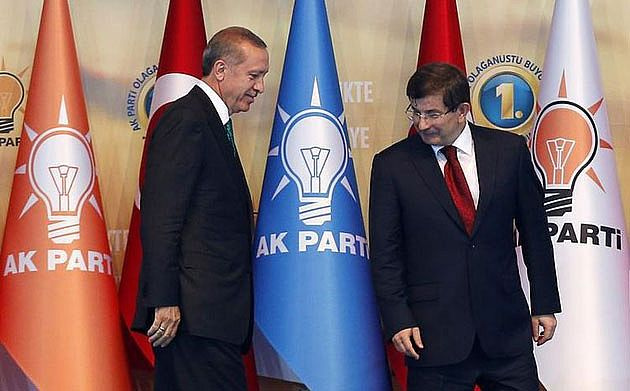Justice and Development; Still the Frontrunner

Turkey today is different from Turkey in the past and tomorrow’s Turkey will not be the same as today. When Erdogan talks about a new Turkey, he talks about the Turkey of tomorrow. Turkey has changed. The structures and the ruling outlook of Turkey’s domestic and foreign policies have undergone fundamental changes. The trend of modifications and dimensions of redefining concepts upon which the Republic of Turkey was founded is expanding and deepening on a daily basis. The military men who had banned the presence of women with ‘hijab’ in Cankaya, now pay respect to the First Lady of Turkey in the Presidential Palace. Turkey owes these changes to Erdogan’s twelve years of administration within the framework of the government of the Justice and Development Party and the collaboration and approval of the world. It seems that Turkey has bypassed its chaotic and unstable past in which, according to Suleyman Demirel, twenty four hours seemed like a long time. The domestic and foreign officials and guests who were present in the inauguration ceremony witnessed the manifestation of the new Turkey. Erdogan’s presidency in Cankaya and the entry of Davutoglu as prime minister represented the continuation of the movement along the path of the new Turkey.
But this is not the entire story. Despite the great changes that have been made in Turkey, the new Turkey, as the old one, is faced with fear and hope; the hope of joining the European Union and the fear of the repetition of the bitter experience of disintegration. The Republic of Turkey was founded on the ruins of the Ottoman Empire and, apart from Ataturk’s reformist behavior, the fear of the West disintegrating Turkey has always been an effective element in distancing themselves from an Islamic appearance and reiteration upon secularism. The internal and foreign policies of Turkey during the Ataturk era were affected by the fear of collapse and then on isolation. Skepticism with regard to the surrounding countries and considering them as enemies was the mentality of the Turkish officials.
Ozal realized the changes of the time and opened Turkey’s gates and understood the issue of the Kurds and paved the way for the trend of developments in Turkey by making certain changes.
The coming to power of Erdogan and the continuation of twelve years of administration by the Justice and Development Party in Turkey accelerated this trend and institutionalized the dimensions of changes and expanded their levels. Today, a big part of the changes in Turkey is institutionalized and a new republic has been established with the help of the West. When Erdogan and his team talk about the new Turkey, it goes beyond today’s changes and will be the Turkey which will be different from Ataturk’s Turkey in all its aspects. If being Turkish was the most important element in Ataturk’s Turkey, citizenship is the most important element of Erdogan’s Turkey. Despite all hopes which are created by Erdogan and his social support about the changes and necessity of their continuation, Turkey is still confronted with fear and hope. This mentality is intertwined with Ottoman nostalgia and the wounds caused by the disintegration and has greatly affected the psyche of the Turkish people, in general, and particularly their officials. The concerns of the Turkish officials about the future of Turkey is one of the important reasons of their reiteration on the necessity of joining the European Union and the resolution of the issue of the Kurds. The significant mental development which is the foundation of changes in today’s Turkey is that the fear and hope has no longer led to a passive policy by the Turkish officials and they attempt to rearrange their domestic and foreign policies through pursuing an active and multidimensional policy. Erdogan and Davutoglu have left aside the security and isolation outlook of Ataturk and, through pursuing a policy of open gates in facing problems, attempt to define a new status for Turkey in the region and the world. Along this path, the Kurds, as an important player inside and outside the borders of Turkey, have always played a significant role in the road map of the Turks.
Besides the economic factor as the main secret behind the success of the Erdogan administration, confronting the fear and strengthening hope in the strategy of the Justice and Development Party and Erdogan himself were always significant. The President of Turkey has understood the psyche of the Turks well and has used his own charisma in order to strengthen the hope for the future and the capabilities of the Turks. Erdogan certainly knows that the scene of politics is not the scene for chanting slogans but through reminding the Turks of their past he has been able to revive the national pride of the people and bring back their self-esteem and confidence and replace fear of the future with hope.
The political conditions in Turkey today show that this trend will continue. At the present time and despite the fact that the presidential election in Turkey has recently ended, the hype of the parliamentary elections has begun from the next day after the president was elected. It seems that the non-existence of a strong alternative in Turkey’s political scene and the continuation of international supports, particularly by the US, with regard to the government of Justice and Development Party has turned the events towards this path and hope for the future has become a strong motivating factor to reach the Turkey of 2023.

